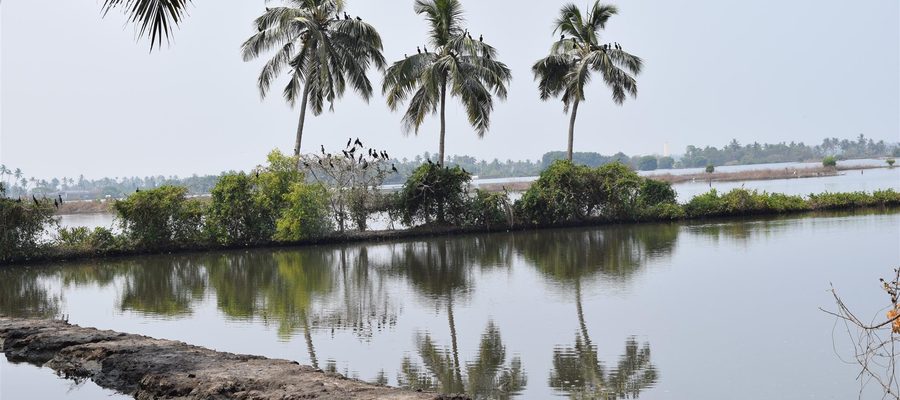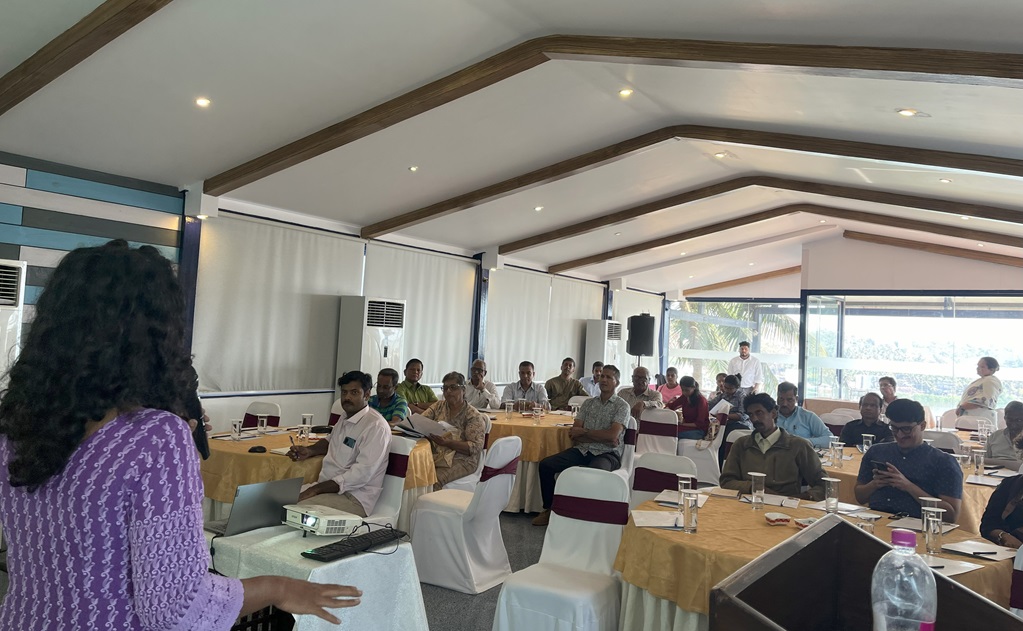ICLEI South Asia Leads Workshop to Forge Collaborative Policies for Khazan Land Protection

Panjim (Goa), 25th February 2024: A day-long workshop was held on Sunday marking a significant step towards the development of a comprehensive strategy and action plan for the management of urban khazans.
This one-day event saw the participation of over 30 stakeholders, including representatives from the Goa State Biodiversity Board, research institutions, khazan landowners and cultivators, subject matter experts, and other organisations.
The workshop, organised by ICLEI-Local Governments for Sustainability, South Asia, is part of the Need for an Urban Policy on Khazans -Ensuring Sustainable and Climate-Resilient Urban Development project, supported by Azim Premji University, Bengaluru. The project aims to highlight the significance of khazan lands in sustainable and climate-resilient urban development, and to support the mainstreaming of conservation and maintenance of khazans into urban planning.
The discussions were enriched by the diverse perspectives of the attendees. “By connecting the stakeholders in the process of the research project, the foundation is laid for a collaborative effort towards preserving the ecological and socio-economic value of these vulnerable khazan lands which give a classic example of coexistence of humans with nature. The insights gained from the workshop are expected to guide the formulation of policies and initiatives that address the identified risks, while enhancing the ecosystem services provided by khazans,” said Dr. Pradip Sarmokadam, Member Secretary, Goa State Biodiversity Board.

Khazans are unique, heritage ecosystems, characterised by their location in saline flood plains within tidal estuaries. These areas have been intricately reclaimed over centuries through a sophisticated network of bunds (embankments) and sluice gates, creating a blend of natural and human-engineered elements. The primary utility of khazans lies in their dual role of acting as an environmental buffer and for agri-aquaculture productivity. They safeguard the surrounding regions from sea-level rise and flooding, while simultaneously providing fertile grounds for cultivation and aquaculture, notably contributing to the livelihood of residents.
Sunday’s workshop presented the results of the study that ICLEI South Asia carried out since 2021. This included a situation analysis of the physical and governance aspects of khazans located in Panjim, Taleigao, St. Cruz and Merces. The intent of the workshop was to build a participatory approach into the development of a local strategy and action plan for khazans in the aforementioned areas, which would be the first of its kind. Based on the situation analysis and the threats identified, the workshop led to the development of goals and actions that will feed into the overall strategy and action plan.
Participants engaged in a robust dialogue, focusing on identifying key challenges and opportunities in khazan land management. “The goal is to not only improve the condition of khazans, but also to develop a list of actionable points that can lead to tangible impact. These action points will help us plan both soft and hard interventions for the strategy to mainstream khazan management and conservation into urban planning,” said Dr Monalisa Sen, Senior Programme Coordinator (Biodiversity), ICLEI South Asia.
Khazan lands, integral to Goa’s unique ecological and cultural landscape, are spread across estuarine basins, including Tiracol, Chapora, Baga, and the Mandovi-Zuari complex, as well as along the Cumbarjua canal, and the Sal, Talpona, and Galgibaga Rivers. Covering eight of the 11 talukas in Goa, these lands originally spanned approximately 17,500 hectares, according to the Directorate of Agriculture, Government of Goa. However, over the past 30 years, there has been a concerning reduction in khazans, particularly around urban centres such as Panjim. This decline is attributed to various developmental pressures, placing the remaining khazan lands at risk. “Focusing on grey infrastructure is no longer a viable solution in the journey to build local climate resilience. Cities must not overlook traditional nature-based solutions like khazans, a heritage ecosystem that is losing relevance despite being extremely relevant,” said Rithika Fernandes, Deputy Manager, ICLEI South Asia.
Emani Kumar, Executive Director, ICLEI South Asia, said, “The initiative aligns with the broader Sustainable Development Goals that call for a significant transformation of how urban spaces are constructed and managed, with an emphasis on building safe and climate-resilient cities. The outcomes of the workshop represent a crucial step forward in restoring these unique ecosystems and preserving the unique heritage associated with them.”
Further developments and updates on the action plan will be shared as the strategy progresses. This workshop marks a concrete step towards a concerted effort to safeguard the future of urban khazans, ensuring they continue to provide critical ecosystem services for generations to come.








